God Mode in Windows 11 or 10: What it is, why and how to use it
What is God Mode in Windows
God Mode is a custom folder that you can create in Windows 11 (or Windows 10) to easily access all basic and advanced settings in one place . This folder automatically puts most of your system settings in one place, making it easy to switch between them with just a double-click on your PC. Windows 11 features an easy-to-use user interface that is one step ahead of previous Windows versions. The new UI and Settings app are targeted at new users, making it easier for new and novice users to navigate most system settings.
However, this also makes it difficult to find easily accessible advanced system settings such as changing time zone, accessibility options, folder options, and more. These settings are now hidden behind multiple clicks, which is where God Mode comes in handy. This new folder allows you to access all your system settings in one place, which is a great way to manage your system directly from your desktop.
What you can do with God Mode in Windows
You can use God Mode to access all advanced and basic system settings in one place. This eliminates the hassle of navigating settings applications as well as control panels to manage and change every aspect of your Windows PC. God Mode helps you easily access hidden settings and manipulate most of your computer's features. So, if you find it tedious to navigate the Windows user interface to manage various aspects and settings of your PC, then God Mode is the perfect option for you.
How to Enable God Mode on Windows 11
You can easily enable God Mode by creating a new folder on your desktop. Please follow the steps below to help you through the process.
Start by going to your desktop. Click anywhere on the desktop and press Ctrl Shift N on your keyboard. (Alternatively, right-click the desktop and select New > Folder.) This will create a new folder on your desktop.

Name your new folder using the string shown below.
GodMode.{ED7BA470-8E54-465E-825C-99712043E01C}
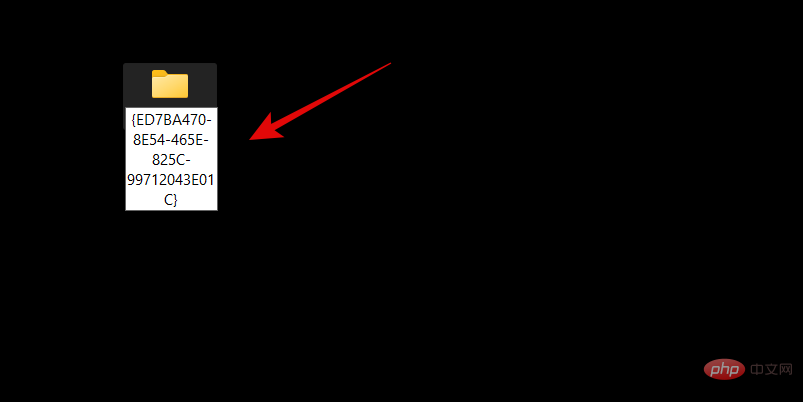

Group by > Name to sort your settings so that you can easily browse through them and find the setting you need.
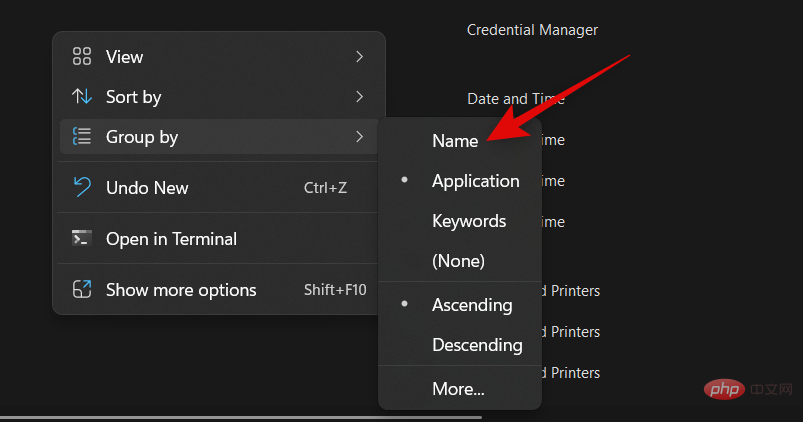
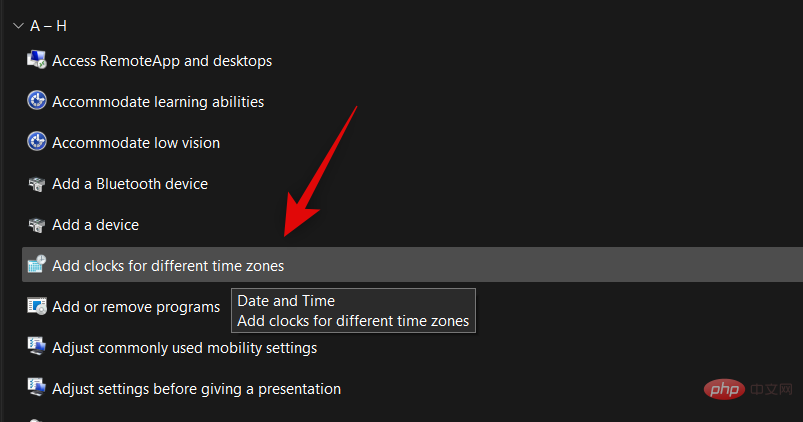
Create shortcut.
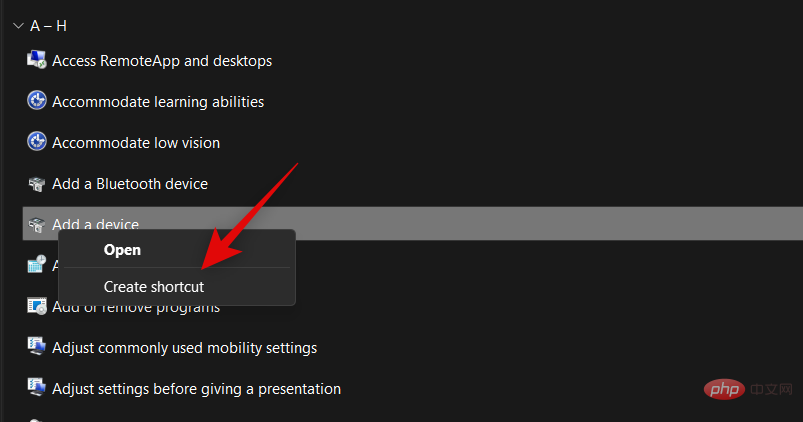
Yes, and a shortcut will be automatically created on the desktop for the relevant settings.
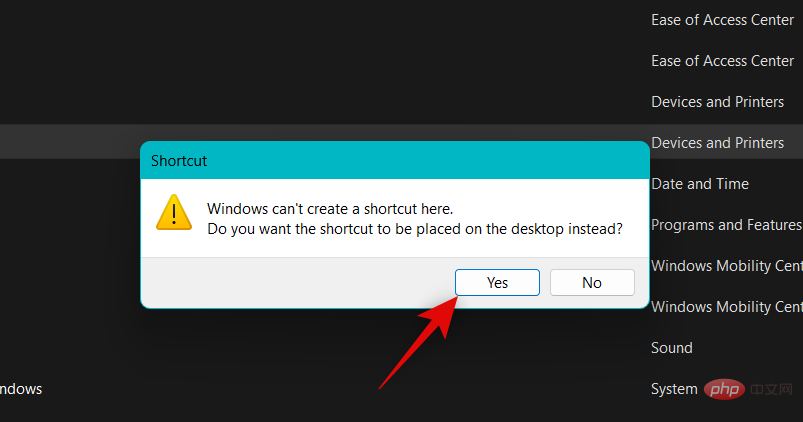
Tip 2: Easily set up connections and devices
You can also use the God Mode folder to easily launch various connection settings, whether it's Ethernet, dial-up, etc. You can also use the God Mode folder to easily set up peripherals and devices.
For example, you can launch microphone settings directly from the God Mode folder without accessing the Settings app. This helps you easily connect the device to your PC without having to visit various settings pages to complete the setup.
Tip 3: Easily switch accessibility options
God Mode also helps you switch between various accessibility options with just a few clicks. This includes accessibility features such as Narrator, low vision adaptation, magnifying glass, mouse pointer size, high contrast, and more. So, if you need to toggle accessibility options regularly, God Mode can help you do the same right from your desktop.
Tip 4: Easily Create and Manage Restore Points
Restore points are a great way to resolve ongoing issues with your PC. System Restore can help you restore your PC to a previously known restore point when everything is working fine. During this process, your PC will revert any changes made to your PC beyond the selected restore point, including installed applications, drivers, settings, and more.
However, creating a restore point in Windows 11 usually requires you to visit the Control Panel and then navigate the recovery options to create a restore point. The same goes for when you try to restore your PC using System Restore. God Mode helps you solve this problem by allowing you to access System Restore directly from your desktop.
Tip 5: Easily manage power options
If you have a laptop, another benefit of using God Mode is the easy access to power options right from your desktop. You can change battery settings, what happens when you close and open the laptop lid, change the behavior of the power button, and more.
This can come in handy, especially if you have a powerful configuration and a dedicated GPU, which can consume a lot of battery power. So, having an easy way to change and control your laptop's power options is a great way to control how much power your PC consumes, and God Mode helps you do this right from your desktop.
Is it safe to enable God Mode?
Yes, it is very safe to enable and use God Mode on your PC. It does not require any third-party scripts or tools that may pose a risk to your PC's security. God Mode is a hidden Windows feature built into the operating system, which is why it is very safe to enable God Mode.
Why use God Mode?
Microsoft plans to phase out Control Panel in the near future. This means that most settings will end up hidden behind various pages and categories in the Settings app.
While this may be a more intuitive way for new users to discover and find the necessary settings, it can be a bit tedious if you know what you're looking for. God Mode does the same for you by giving you access to almost all settings directly from your desktop.
Will God Mode work with all future versions of Windows 11?
No guarantee of the same, but God Mode will likely run easily on most future versions of Windows 11. This appears to be a hidden feature designed to help developers, and currently, there is no indication that God Mode will be removed from Windows.
Does God Mode work with Windows 10?
Yes, God Mode works on Windows 10 too. So, if you haven’t updated to Windows 11 yet, you can still use the guide above to enable God Mode on Windows 10 and access all your PC settings right from your desktop.
The above is the detailed content of God Mode in Windows 11 or 10: What it is, why and how to use it. For more information, please follow other related articles on the PHP Chinese website!

Hot AI Tools

Undresser.AI Undress
AI-powered app for creating realistic nude photos

AI Clothes Remover
Online AI tool for removing clothes from photos.

Undress AI Tool
Undress images for free

Clothoff.io
AI clothes remover

AI Hentai Generator
Generate AI Hentai for free.

Hot Article

Hot Tools

Notepad++7.3.1
Easy-to-use and free code editor

SublimeText3 Chinese version
Chinese version, very easy to use

Zend Studio 13.0.1
Powerful PHP integrated development environment

Dreamweaver CS6
Visual web development tools

SublimeText3 Mac version
God-level code editing software (SublimeText3)

Hot Topics
 How to fine-tune deepseek locally
Feb 19, 2025 pm 05:21 PM
How to fine-tune deepseek locally
Feb 19, 2025 pm 05:21 PM
Local fine-tuning of DeepSeek class models faces the challenge of insufficient computing resources and expertise. To address these challenges, the following strategies can be adopted: Model quantization: convert model parameters into low-precision integers, reducing memory footprint. Use smaller models: Select a pretrained model with smaller parameters for easier local fine-tuning. Data selection and preprocessing: Select high-quality data and perform appropriate preprocessing to avoid poor data quality affecting model effectiveness. Batch training: For large data sets, load data in batches for training to avoid memory overflow. Acceleration with GPU: Use independent graphics cards to accelerate the training process and shorten the training time.
 deepseek image generation tutorial
Feb 19, 2025 pm 04:15 PM
deepseek image generation tutorial
Feb 19, 2025 pm 04:15 PM
DeepSeek: A powerful AI image generation tool! DeepSeek itself is not an image generation tool, but its powerful core technology provides underlying support for many AI painting tools. Want to know how to use DeepSeek to generate images indirectly? Please continue reading! Generate images with DeepSeek-based AI tools: The following steps will guide you to use these tools: Launch the AI Painting Tool: Search and open a DeepSeek-based AI Painting Tool (for example, search "Simple AI"). Select the drawing mode: select "AI Drawing" or similar function, and select the image type according to your needs, such as "Anime Avatar", "Landscape"
 Pi Node Teaching: What is a Pi Node? How to install and set up Pi Node?
Mar 05, 2025 pm 05:57 PM
Pi Node Teaching: What is a Pi Node? How to install and set up Pi Node?
Mar 05, 2025 pm 05:57 PM
Detailed explanation and installation guide for PiNetwork nodes This article will introduce the PiNetwork ecosystem in detail - Pi nodes, a key role in the PiNetwork ecosystem, and provide complete steps for installation and configuration. After the launch of the PiNetwork blockchain test network, Pi nodes have become an important part of many pioneers actively participating in the testing, preparing for the upcoming main network release. If you don’t know PiNetwork yet, please refer to what is Picoin? What is the price for listing? Pi usage, mining and security analysis. What is PiNetwork? The PiNetwork project started in 2019 and owns its exclusive cryptocurrency Pi Coin. The project aims to create a one that everyone can participate
 binance official website URL Binance official website entrance latest genuine entrance
Dec 16, 2024 pm 06:15 PM
binance official website URL Binance official website entrance latest genuine entrance
Dec 16, 2024 pm 06:15 PM
This article focuses on the latest genuine entrances to Binance’s official website, including Binance Global’s official website, the US official website and the Academy’s official website. In addition, the article also provides detailed access steps, including using a trusted device, entering the correct URL, double-checking the website interface, verifying the website certificate, contacting customer support, etc., to ensure safe and reliable access to the Binance platform.
 How to ask deepseek
Feb 19, 2025 pm 04:39 PM
How to ask deepseek
Feb 19, 2025 pm 04:39 PM
The search accuracy of DeepSeek depends on the way of asking questions. To achieve ideal results, the question should contain the following key elements: Clear topic: Specific specified information objectives. Specific angles: Cut into the topic from a specific perspective. Expected output form: define the desired result type (summary, analysis, list, etc.).
 How to download deepseek
Feb 19, 2025 pm 05:45 PM
How to download deepseek
Feb 19, 2025 pm 05:45 PM
Make sure to access official website downloads and carefully check the domain name and website design. After downloading, scan the file. Read the protocol during installation and avoid the system disk when installing. Test the function and contact customer service to solve the problem. Update the version regularly to ensure the security and stability of the software.
 How to use deepseek
Feb 19, 2025 pm 04:45 PM
How to use deepseek
Feb 19, 2025 pm 04:45 PM
DeepSeek is an efficient data search and analysis tool with an indexing mechanism at its core. Factors that affect their efficiency include: data type, data size, search strategy, and DeepSeek performance. High-quality data, refined search queries and sufficient computing resources are essential to optimize search results.
 How to adjust Sesame Open Exchange into Chinese
Mar 04, 2025 pm 11:51 PM
How to adjust Sesame Open Exchange into Chinese
Mar 04, 2025 pm 11:51 PM
How to adjust Sesame Open Exchange to Chinese? This tutorial covers detailed steps on computers and Android mobile phones, from preliminary preparation to operational processes, and then to solving common problems, helping you easily switch the Sesame Open Exchange interface to Chinese and quickly get started with the trading platform.





